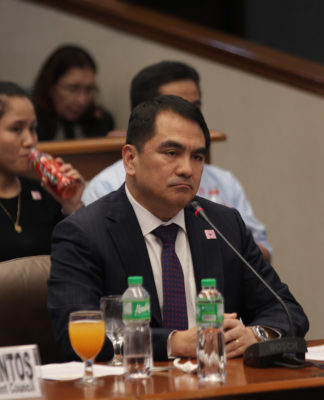“If someone is gay and is searching for the Lord and has good will, then who am I to judge him?”
These words of Pope Francis, said during a freewheeling press conference aboard a return flight to Rome from the hugely successful World Youth Day celebrations in Rio de Janeiro last July, represent a change in tone by the Church on gays, observers note.
When popes spoke publicly about homosexuality, the message was often a condemnation of gay marriage, and so Vatican critics took Francis’ words in a positive light.
Church teaching is actually not against “homosexual orientation,” but “homosexual acts.”
In the airborne press conference last July 29, Francis addressed a question about the so-called “gay lobby” in the Vatican said to be protecting erring clergymen, and about the appointment of a monsignor with a history of sexual indiscretions to oversee the cleanup of the Vatican bank.
In response, Pope Francis distinguished clearly between “sin” and “crime.”
“I see that many times in the Church … people search for ‘sins from youth,’ for example, and then publish them. They are not crimes, right? Crimes are something different: the abuse of minors is a crime … But if a person, whether it be a lay person, a priest or a religious sister, commits a sin and then converts, the Lord forgives, and when the Lord forgives, the Lord forgets and this is very important for our lives,” he said.
“So much is written about the gay lobby. I still haven’t found anyone with an identity card in the Vatican with ‘gay’ on it,” he added.
The Catechism of the Catholic Church, Francis pointed out, teaches that homosexuals should be respected and not marginalized. “The problem is not having this tendency, no, we must be brothers and sisters to one another,” he said.
The change in tone toward controversial moral issues was acknowledged by the Pope himself, telling journalists covering the Vatican that he wanted to send a positive message to the youth in Rio.
Echoing Francis, the Catholic Bishops’ Conference of the Philippines (CBCP) reiterated that the Church’s teaching against same-sex marriage was not a condemnation of gays and lesbians.
“The Church has no problem with gays and lesbians … We do not condemn gays and lesbians,” said Fr. David Clay, assistant executive secretary of the CBCP Episcopal Commission on Family and Life (ECFL). “That’s what Pope Francis said. What’s wrong with having them? We’re not going to condemn them. We are here to help.”
Fr. Melvin Castro, executive secretary of CBCP-ECFL, also spoke about acceptance of homosexuals. “We accept them, even if they have same-sex attraction, but we cannot accept if they will have same-sex relationships or same-sex unions,” Castro said in an interview with Radyo Veritas last Aug. 2.
Manila Auxiliary Bishop Broderick Pabillo agreed.
“Walang masama sa pagiging homosexual. Ang homosexual activities na nakakasira sa religious conviction `yung masama. `Yung pakikipag-ugnay mo lang sa tao, sa same sex, gumagawa ng sexual activities, `yun `yung masama. Wala nang chastity diyan, wala nang purity diyan,” Pabillo told the Varsitarian in an interview.
‘Global leader’ in virtue
In a previous interview with the Varsitarian, Allan Basas, faculty secretary of the Institute of Religion, explained that natural law was the basis of Church teaching on marriage.
“Natural law emphasizes the procreative aspect of marriage, which happens in the unity between a man and a woman. The natural law is unchanging. It is constant,” Basas said.
Canon Law defines marriage as “a covenant by which a man and a woman establish between themselves a partnership of their whole life, and by its own very nature is ordered to the well-being of the spouses and to the procreation and upbringing of children.”
Jason Evert, an American chastity educator, believes that the Philippines, being a virtuous country and a “global leader” in terms of chastity and morality, will not be swayed by the legalization of same-sex marriage in some countries.
“The Philippines, in my opinion, is really a global leader and a virtuous country. One of the examples is its youth’s almost 10 years delay in sex debut,” Evert told the Varsitarian during the press briefing for the “Real Love Revolution” 2013 conference.
Evert and his fellow chastity educators from the Chastity Project, a Catholic website, outlined the reasons why people of the same sex cannot marry each other, despite their willingness to stay faithful for life.
“The reason why people of the same sex who love each other and are willing to be faithful for life cannot get married is because there is more to marriage than love and faithfulness. These are necessary elements, like two legs of a four-legged chair, but they are not the only ones,” the Chastity Project site stated.
Not discrimination
The group also emphasized the significance of procreation in marriage. “For a valid marriage to take place, the union must be free, total, faithful, and ordered toward procreation. All these characteristics are necessary.”
People often misinterpret the statements of the Church, the Chastity Project lamented.
“They mistakenly assume that the Church’s message contributes to hatred and unjust discrimination. Teenagers today experience overwhelming social pressures not to ‘hate gays’—as if the invitation to chastity involved anything other than profound love and respect.”
Clay argued that opposing same-sex marriage only meant respect for the “true meaning” of marriage.
“Not allowing [homosexuals] to get married is not discrimination. It’s not God’s plan for two men or two women to get married,” Clay said. “If two men want to be together, have sex with each other, and live together as a couple, it’s up to them. But I’m not going to call it marriage nor am I allowing the state to call it marriage.”
Clay said the CBCP Episcopal Commission on Youth, along with the Manila Archdiocesan Commission on Youth, would be working together to educate the youth on these issues.
“We will be giving talks, stories of men who were homosexuals and how they have changed. We have to show [the youth] what they experienced. That is the most effective,” Clay said.
















